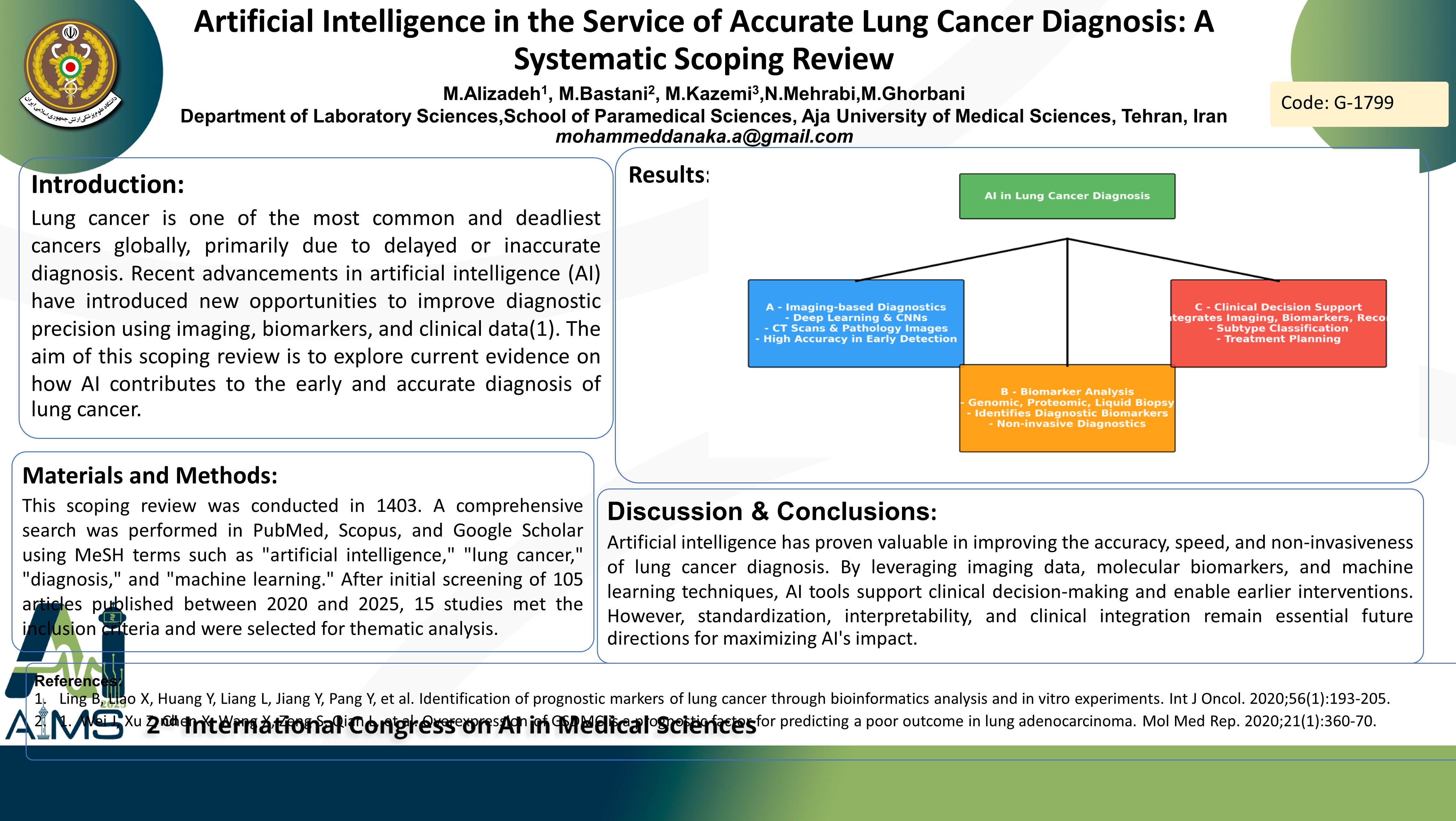هوش مصنوعی در خدمت تشخیص دقیق سرطان ریه: یک مرور اسکوپینگ نظاممند
کد: G-1799
نویسندگان: Mohammad Alizadeh ℗, Mohammad Bastani, Mohammad Hassan Kazemi *, Nahid Mehrabi, Mahdi Ghorbani
زمان بندی: زمان بندی نشده!
برچسب: تشخیص و درمان سرطان
دانلود: دانلود پوستر
خلاصه مقاله:
خلاصه مقاله
Background and aims: Lung cancer is one of the most common and deadliest cancers globally, primarily due to delayed or inaccurate diagnosis. Recent advancements in artificial intelligence (AI) have introduced new opportunities to improve diagnostic precision using imaging, biomarkers, and clinical data. The aim of this scoping review is to explore current evidence on how AI contributes to the early and accurate diagnosis of lung cancer. Method: This scoping review was conducted in 1403. A comprehensive search was performed in PubMed, Scopus, and Google Scholar using MeSH terms such as "artificial intelligence," "lung cancer," "diagnosis," and "machine learning." After initial screening of 105 articles published between 2020 and 2025, 15 studies met the inclusion criteria and were selected for thematic analysis. Results: The reviewed studies indicated that AI supports lung cancer diagnosis in three primary domains: A-Imaging-based diagnostics – AI models, especially deep learning and convolutional neural networks (CNNs), have been used to analyze CT scans and pathology images with high accuracy in detecting early-stage lung cancer. B-Biomarker analysis – AI systems have been applied to genomic, proteomic, and liquid biopsy data to identify diagnostic biomarkers, enhancing non-invasive diagnostic capabilities. C-Clinical decision support – AI has been employed in integrated models that combine imaging, biomarkers, and clinical records to assist in subtype classification and treatment planning, especially in distinguishing between different types of lung cancer. Conclusion: Artificial intelligence has proven valuable in improving the accuracy, speed, and non-invasiveness of lung cancer diagnosis. By leveraging imaging data, molecular biomarkers, and machine learning techniques, AI tools support clinical decision-making and enable earlier interventions. However, standardization, interpretability, and clinical integration remain essential future directions for maximizing AI's impact.
کلمات کلیدی
Artificial-Intelligence, Lung-Cancer, Medical-Diagnosis, Bio-Markers
